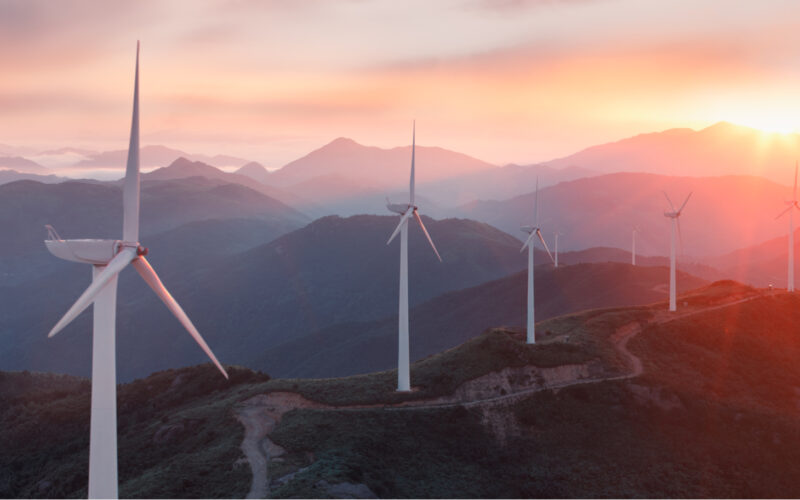In 2020, the UK Parliament Commons Library published a briefing document which described the UK’s energy challenges as a “trilemma” of security, affordability and sustainability. The goal of energy policy was thus to find the best balance between all three factors.
Judged on that basis, UK energy policy has been a disaster, failing on all fronts.
Increasingly reliant on undependable solar and wind power, the UK is more dependent on imported electricity – from France, Belgium and the Netherlands – than ever. As for gas, storage capacity has dwindled such that supplies depend on “just-in-time” delivery from various North Sea pipelines. Last year a petrol crisis emerged out of the blue, leaving thousands of British motorists stranded, in some areas for days.
The UK’s increasingly dubious energy security is only indirectly responsible for soaring power prices, however. Supplies from abroad have not been materially interrupted, nor has the grid failed at home. But as continental Europe is so highly reliant on Russian gas, the prior disputes over the Nord Stream 2 pipeline and the current conflict over Ukraine – greatly affecting gas transit – place generally upward pressure on prices.
Multiple UK energy providers, constrained by the government-imposed cap on gas and power prices, have been teetering on the edge of bankruptcy for months. The entire sector may require a bailout at some point. In the meantime, to the extent that they can pass along price increases to consumers, they’ll do so.
In some cases they at least offer helpful advice on how to save on energy bills, such as to turn down the thermostat and cuddle with a pet under a blanket. But while cosying up to a pet or layering up one’s clothing might help to take the edge off the cold from time to time, it is hardly a solution to general energy security and affordability issues. Pets and blankets can’t keep aluminium smelters online.
When it comes to sustainability and closely associated “decarbonisation”, the policy failure is less evident. After all, the UK is less reliant on fossil-based energy today than in years past, when coal, then oil and gas, dominated. But this shift away from fossils to renewables has been hugely expensive and has contributed in substantial part to the twin failures on the security and affordability fronts.
Lulled into a false sense of energy security by the unfulfilled promises of wind, solar and other renewables, the UK government appears to have an energy alarm clock with a snooze function: it has repeatedly awoken to one buzz after another, only to flail around for the button and go back to sleep.
But not this time. Recognising that the next election may well be fought in large part over the soaring cost of living and energy’s significant contribution thereto, the government is scrambling out of bed and assessing the deteriorating, dismal situation on the home energy front.
When under attack, a trained military tactician will first try to hold the entire perimeter of their position, however weak and vulnerable. If it becomes clear, however, that the perimeter won’t hold, then the correct decision is to order a retreat from the weaker, most vulnerable positions and concentrate available forces within a smaller, more easily defended perimeter.
Last week, the government has announced precisely that. Rather than try to solve the perhaps unsolvable energy “trilemma”, the government is now going to beat at least a partial retreat from the sustainability front and concentrate primarily on security and affordability instead.
In what could be the largest revision to UK energy policy since the early 1980s, when the transition from coal to North Sea (and imported) oil and gas began, the government has decided not only to retain a substantial nuclear power generation capacity, but to expand it, potentially building seven new reactors. By the time the programme is completed around 2050, nuclear power generation could well be the single biggest contributing source of UK power generation.
Nuclear provides a neat solution to the more traditional energy dilemma of balancing security and affordability. Next-generation nuclear plants are more efficient, safer, and have a longer lifespan than those they are set to replace. Although the uranium must be sourced from abroad, it can be acquired from multiple countries, including safe jurisdictions. It can also be purchased in advance and stored locally, such that years of reserves can be provisioned up-front if desired.
It is worth recalling that the UK has had sizeable nuclear power ambitions before. Indeed, nuclear capacity was once high enough to provide fully one-quarter of all power needs. Today, the nuclear-generated share is barely half that.
The sharp drop in nuclear generation most recently has been accompanied by a surge in the use of spare coal generation capacity. What might appear to be a great leap backward to century-old technology is only occurring, ironically, because of the colossal overpromising and underdelivering of the futuristic sustainable energy industry.
The UK is hardly alone in this respect. Germany and much of Central and Eastern Europe face an even worse situation, with unpleasant geopolitical consequences. Their new energy dilemma is existential. Either Germany and its neighbours find a way to make peace with Russia, or their soaring energy costs will render their previously competitive export machine unprofitable.
That the most economically vibrant part of the EU is at risk of a severe negative energy shock is also an existential risk for the euro. Without an economically competitive Germany, who is going to carry the weaker, heavily-indebted and relatively uncompetitive members of the single-currency area?
The answer is: no one. If the German export machine grinds to a halt, the euro is doomed. And if the euro is doomed, the EU will not survive in its present form.
As I’ve written before, Brexit has been disruptive no doubt, and may continue to be so in various ways for some time. But while lowering lifeboats from the sinking Titanic might have disrupted an otherwise pleasant evening for the passengers, the alternative was far, far worse.
A series of unfortunate events, some self-inflicted, may have blown up the UK’s previous energy strategy, but Brexit is not to blame. The damage to the EU has been much worse. The amount of “nuclear fallout” on both sides of the Channel may be of historic proportions.
Now outside the EU, the UK’s challenge is to make the most of its energy flexibility. Fortunately, it is substantial. There are options, both domestic and foreign. Here at home, there are clean coal, fracking and fresh North Sea oil fields to consider.
While the UK may still source much of its energy from the EU, Norway, a non-EU country, is also a large UK energy supplier. Liquified natural gas (LNG) is delivered to the UK from over much of the world, and domestic distribution and storage capacity could be expanded and improved.
The exigencies of energy security will not abate any time soon. Ambitious nuclear plans will take years to materialise. Fracking, or new oil or gas fields, if they ever get the “green” light – pun intended – would also take years to develop in full. Investors would do well to seize the opportunities presented by this historic reorientation of the UK’s energy policies.
John Butler
Contributing Editor, Fortune & Freedom




